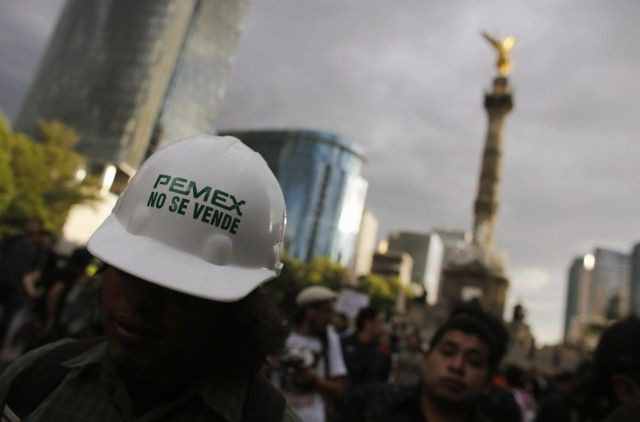
In 1992, Pemex partnered up with the American oil company Shell in a joint venture to process Mexican oil into unleaded gasoline at a Shell refinery in Deer Park, Texas. That year, Pemex agreed to buy half of the refining operation for which it would also supply the crude oil; in return, Shell would supply the technology and manpower to return some 45,000 barrels of unleaded gasoline to Mexico per day. Ten years later, that deal was bringing in over $100 million in annual revenues to Pemex, even as the state-owned company continued to hemorrhage money. Now, as Mexico's president plans to unveil details to Congress on his plan to open Pemex to private investment, the company is saying it will try to duplicate its successful deal with Shell by investing in refining equipment from the other side of the border.
RELATED: 45 Percent Of Mexicans Still Live In Poverty Despite Declining Rate, Says New Study
Mexico, the world's ninth-largest producer of oil, sits on huge energy reserves, but has to import almost half of its gasoline from abroad because it lacks the necessary capacities to refine its crude oil. Miguel Tame, director of Pemex's refining branch, told Reforma that the company would look to the US because "in that country there exist capacities to be taken advantage of".
RELATED: Mario Delgado, Mexican Senator, Proposes Creation Of Marijuana Coffee Shops In Mexico City
But the revenue which such a deal might bring in for the state giant are a drop in the bucket compared to its losses; its officials say if serious reforms aren't made, Mexico will become a net energy importer by 2020. President Enrique Peña Nieto is seeking to do just that: last Thursday, he said he will present to Mexican Congress this week an energy reform plan which will likely include changes to the constitution in order to attract foreign and private investment in the state oil company.
RELATED: PRD Calls For Referendum On Pemex Reform
The idea is politically treacherous. Upon being elected, Peña Nieto presented his "Pact For Mexico", a set of priorities which promised uncertain reforms for Pemex and which Mexico's two main opposition parties signed off on. But after the president suggested he had tripartisan support for a change to the constitution-Article 27 guarantees that oil resources remain in the hands of the state - his opponents from the leftist Democratic Revolution Party (PRD) lashed out at him.
"No, no, definitely no," Jesus Zambrano, head of the PRD, told the Los Angeles Times. Zambrano accused the president of being willing "to sell the golden eggs and the goose that laid them!"
© 2025 Latin Times. All rights reserved. Do not reproduce without permission.



